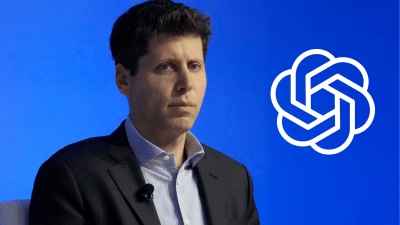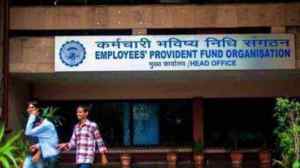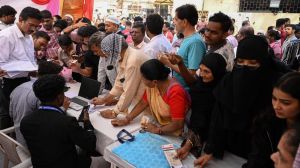Inside Track
Divided houseIn diplomacy, Pakistan always seems streets ahead of India. Within minutes of its nuclear explosions, Pakistan had dispatched a...

Divided house
In diplomacy, Pakistan always seems streets ahead of India. Within minutes of its nuclear explosions, Pakistan had dispatched a team of suave statesman abroad who were in Washington even before their second test was conducted. Before testing, Pakistan scripted an elaborate charade that it feared a preemptive strike on its nuclear installations by India and Israel. And so persuasive was its propaganda that an Indian multi-edition newspaper even carried a ridiculous report of an Israeli F-16 plane straying into Pakistani territory as first lead on its front page!
India, on the other hand, seems to have gone ahead with the tests without any advance planning to contain the adverse impact on world opinion. Three weeks later, the BJP Government is still asking its think tank to prepare a comprehensive and cogent document presenting the Indian case!
While Pakistan authorities go out of their way to woo foreign correspondents, the western media in New Delhi is given the usual bureaucraticrun-around and fobbed off with relatively junior officials. Indian representatives on foreign television networks do not comprehend the importance of the sound byte but instead recount the entire Mahabharat of India8217;s nuclear journey, losing their audiences in the process.
The Pakistanis have renounced one meal a day and having enjoyed the 20-course lavish spreads hosted by their upper crust, this is indeed a commendable sacrifice and their civil liberties, which are nebulous at the best of times anyway, without a squeak.
If India, in contrast, presents a divided house to the outside world, a large share of the blame must go to the Capital8217;s ubiquitous breed of what are referred to in local parlance as knickerwallahs and jhollawallahs, of whom the Delhi media has a particularly large supply.
To score points, one side is busy war-mongering and talking xenophobically to the embarrassment of the Government. The other accepts unquestioningly every piece of pessimistic propaganda fed by thetwo big bully nations, USA and China.
Mixed-up portfolios
Who is running the Foreign Office at this critical juncture? Though Prime Minister Atal Behari Vajpayee doubles as his own External Affairs Minister, he is bogged down by many other issues of governance. Foreign Secretary K. Raghunath follows the brief given to him but cannot take the initiative. Prime Minister8217;s Principal Secretary Brajesh Mishra would like to run the Foreign Office but his job description calls for a lot of other things for which he does not have the time.
Minister of State for External Affairs Vasundara Raje Scindia makes an attractive advertisement for Indian shampoos, and hair oils, but is usually kept in the dark by the Foreign Office. Scindia has yet to grasp the nuances of India8217;s nuclear and foreign policy so that she can brief others.
Jaswant Singh, Deputy Chairperson of the Planning Commission, has been busy of late fire-fighting on behalf of the MEA rather than paying attention to his job at Yojna Bhawan.Considering that Singh has been regularly advising the PM on foreign policy, it makes more sense to officially induct him as a minister in the MEA, particularly as he will soon be a Rajya Sabha MP.
Go-ahead to Sonia
AIADMK supremo J. Jayalalitha has decided that enough is enough. She complains that the BJP government talks and talks but does little to protect her. In contrast P.V. Narasimha Rao as PM spoke little but quietly did her bidding. She is also fuming because the Tamil BJP unit garlanded M. Karunanidhi on his birthday.
Jayalalitha is not appeased by the Government8217;s framing of a new income tax amnesty scheme, which gives her immunity with retrospective effect, and FEMA which replaces the earlier FERA which again appears to have been drafted specifically with her in mind. Jayalalitha8217;s non-negotiable demand remains the dismissal of the Karunanidhi government which is handling most of the legal cases against her. By now Jayalalitha is not merely willing to support a non-BJP government,she has reached the stage where she has no objection even if Sonia Gandhi takes over as PM!
Sonia Gandhi, however, is reluctant to head a fragile government with a messy situation to handle. Nor is she willing to permit Sharad Pawar to act as her proxy prime minister.
Bargain price
The sophisticated laptop computers with a CD-rom which were loaned to parliamentarians can now be bought by the MPs after two years at the depreciated price of Rs 8,000. The price has been arrived at by a parliamentary sub-committee, even though the new computers cost Rs 1.2 lakh and they are estimated to be worth around Rs 80,000 second hand in the open market. MPs from the last Lok Sabha feel that the rule is unfair to them since they can8217;t buy their old laptops 8212; which over a 100 MPs from the last Parliament have yet to return 8212; since the truncated 11th Lok Sabha term did not extend beyond two years. On the other hand, Rajya Sabha MPs are free to buy their old laptops for a song.
- 01
- 02
- 03
- 04
- 05































